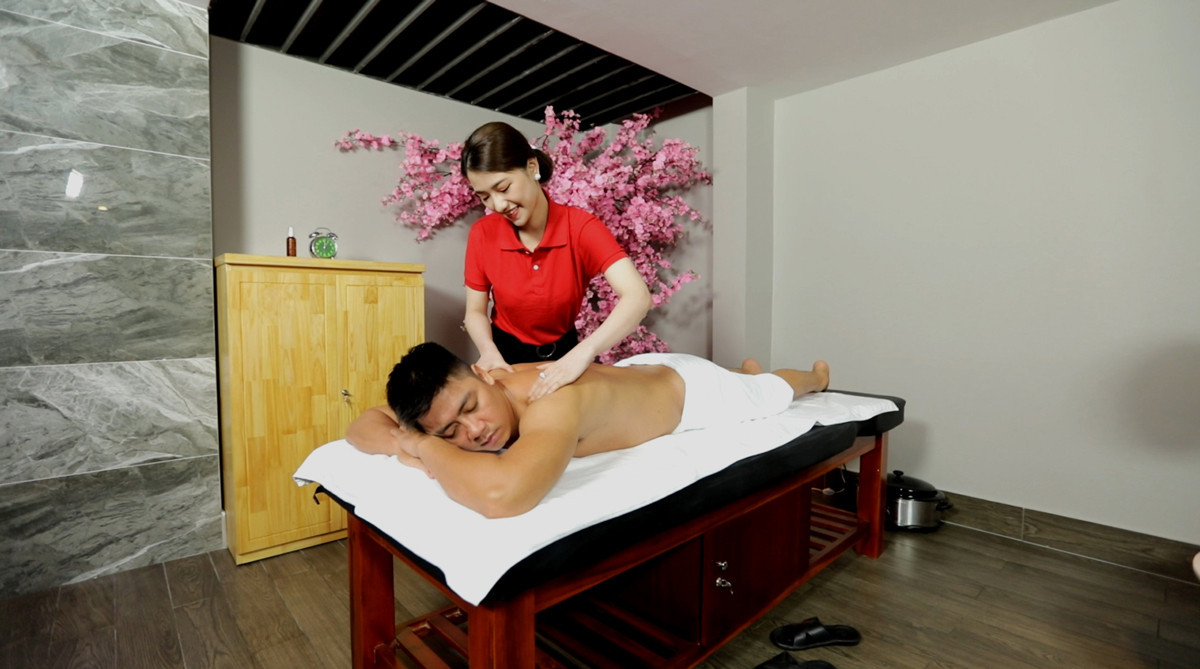Vietnamese willing to pay for new expensive services
Many unfamiliar services have been launched into the market and are expensive in comparison with the average income of Vietnamese. However, many consumers are willing to pay for them.
Bluecare, a startup, once called for investment capital on a TV show. Though its founder failed to call for capital, the startup, which provides home healthcare services, attracted attention from the public.
Of the services Bluecare introduced, one on caring for infants with a high service fee caught the highest attention. Vietnam is seriously lacking nurses and baby carers. Meanwhile, young couples are busy with work and are not equipped with parenting skills like their grandparents and parents.
The home all-in-one infant care service offered by Bluecare has a fee that changes in different months and depending on family location. The service is up to VND40-50 million a month.
The workers whom the center provides can undertake a lot of work – taking care of children, talking with children, bathing children under the sun, feeding children, changing diapers, putting babies to sleep, and teaching skills such as crawling or sitting.
In special cases, the service fee can be up to VND2 million per day and carers can stay day and night, or VND60 million a month.
Similar models like Bluecare’s have been developed by many other startups. There is a growing trend of setting up an ecosystem of home medical and health care, including nursing care at home, or in hospital; rehabilitation; acupuncture-reflexology; care for the elderly at home; taking care of mothers after giving birth; taking care of children after birth; and home testing.
The beauty industry is also believed to have a bright future in Vietnam. Beauty salons have been mushrooming over the last few years. Notably, services are expensive, with fees of tens of millions of dong each time, but many Vietnamese still accept to spend money on the services.
The beauty service by stem cell injection has become popular in Hanoi and HCM City. The fee for each injection is $5,000-8,000, or hundreds of millions of VND.
In addition, orthodontics is increasingly popular which can bring high profits to service providers.
Analysts said beauty services target middle-class people and high income earners.
In the tourism industry, tours tailored to the taste of specific travelers have been flourishing. Some travel firms provide tours that allow travelers to have special experiences. The tours, to Japan and western Asia, last 7-10 days and cost VND50-70 million, or even hundreds of millions of dong per person.
The tours are specifically designed for individuals, and are not similar to any tour available in the market and are always in ‘booked full’ status.
The demand for luxury tours is so high that travel firms say they don’t have enough professional tour guides to serve extra wealthy families in Vietnam.
In addition, the service of bringing and picking children from school, or taking care of older people is also in high demand, especially in large cities. People pay tens of millions of dong a month to have their elderly parents taken care of by professional carers. However, the services are not always available because of high demand.
Experts predict that the proportion of elderly people in Vietnam will continue to increase by 10-20 percent per annum until 2040. When the population gets older, the service of caring for the elderly will be very necessary, as is happening now in Japan and Taiwan.
The Vietnamese tradition is that they want to take care of their parents, while they are always busy with jobs and do not have time to do this.
As the average income has improved, Vietnamese people now allow themselves to use more services to entertain and relax themselves.
Experts said that the services of this kind will continue to flourish in the time to come, when Vietnamese people become busier in the modern society and have higher income to spend on the services that help them relax after busy work.
Manh Ha
Source: https://vietnamnet.vn/en/vietnamese-willing-to-pay-for-new-expensive-services-2152944.html


 Thailand
Thailand




